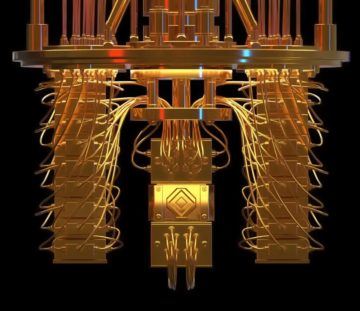Scott Aaronson in Quanta:
 Quantum computers, you might have heard, are magical uber-machines that will soon cure cancer and global warming by trying all possible answers in different parallel universes. For 15 years, on my blog and elsewhere, I’ve railed against this cartoonish vision, trying to explain what I see as the subtler but ironically even more fascinating truth. I approach this as a public service and almost my moral duty as a quantum computing researcher. Alas, the work feels Sisyphean: The cringeworthy hype about quantum computers has only increased over the years, as corporations and governments have invested billions, and as the technology has progressed to programmable 50-qubit devices that (on certain contrived benchmarks) really can give the world’s biggest supercomputers a run for their money. And just as in cryptocurrency, machine learning and other trendy fields, with money have come hucksters.
Quantum computers, you might have heard, are magical uber-machines that will soon cure cancer and global warming by trying all possible answers in different parallel universes. For 15 years, on my blog and elsewhere, I’ve railed against this cartoonish vision, trying to explain what I see as the subtler but ironically even more fascinating truth. I approach this as a public service and almost my moral duty as a quantum computing researcher. Alas, the work feels Sisyphean: The cringeworthy hype about quantum computers has only increased over the years, as corporations and governments have invested billions, and as the technology has progressed to programmable 50-qubit devices that (on certain contrived benchmarks) really can give the world’s biggest supercomputers a run for their money. And just as in cryptocurrency, machine learning and other trendy fields, with money have come hucksters.
In reflective moments, though, I get it. The reality is that even if you removed all the bad incentives and the greed, quantum computing would still be hard to explain briefly and honestly without math. As the quantum computing pioneer Richard Feynman once said about the quantum electrodynamics work that won him the Nobel Prize, if it were possible to describe it in a few sentences, it wouldn’t have been worth a Nobel Prize.
More here.
